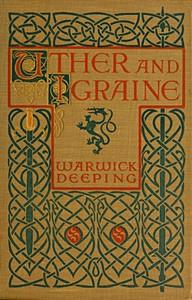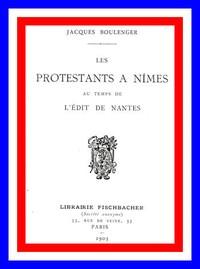Read this ebook for free! No credit card needed, absolutely nothing to pay.
Words: 216614 in 39 pages
This is an ebook sharing website. You can read the uploaded ebooks for free here. No credit cards needed, nothing to pay. If you want to own a digital copy of the ebook, or want to read offline with your favorite ebook-reader, then you can choose to buy and download the ebook.
CONTINUATION OF HISTORICAL GREECE.
Rally of Athens, during the year after the defeat at Syracuse. B.C. 412.--Commencement of the conspiracy of the Four Hundred at Athens--Alkibiad?s.--Order from Sparta to kill Alkibiad?s.--He escapes, retires to Tissaphern?s, and becomes adviser of the Persians.--He advises the satrap to assist neither of the Grecian parties heartily--but his advice leans towards Athens, with a view to his own restoration.--Alkibiad?s acts as negotiator for Tissaphern?s at Magnesia.--Diminution of the rate of pay furnished by Tissaphern?s to the Peloponnesians.--Alkibiad?s opens correspondence with the Athenian officers at Samos. He originates the scheme of an oligarchical revolution at Athens.--Conspiracy arranged between the Athenian officer and Alkibiad?s.--Oligarchical Athenians--the hetaeries, or political clubs. Peisander is sent to push forward the conspiracy at Athens.--Credulity of the oligarchical conspirators.--Opposition of Phrynichus at Samos to the conspirators, and to Alkibiad?s.--Manoeuvres and counter-manoeuvres of Phrynichus and Alkibiad?s.--Proceedings of Peisander at Athens--strong opposition among the people both to the conspiracy and to the restoration of Alkibiad?s.--Unwilling vote of the assembly to relinquish their democracy, under the promise of Persian aid for the war. Peisander is sent back to negotiate with Alkibiad?s.--Peisander brings the oligarchical clubs at Athens into organized action against the democracy.--Peisander leaves Athens for Samos--Antiphon takes the management of the oligarchical conspiracy--Theramen?s and Phrynichus.--Military operations near the Asiatic coast.--Negotiations of Peisander with Alkibiad?s.--Tricks of Alkibiad?s--he exaggerates his demands, with a view of breaking off the negotiation--indignation of the oligarchs against him.--Reconciliation between Tissaphern?s and the Peloponnesians.--Third convention concluded between them.--Third convention compared with the two preceding.--Loss of Or?pus by Athens.--Peisander and his colleagues persist in the oligarchical conspiracy, without Alkibiad?s.--They attempt to subvert the democracy at Samos--assassination of Hyperbolus and others.--The democracy at Samos is sustained by the Athenian armament.--The Athenian Parali--defeat of the oligarchical conspiracy at Samos.--The Paralus is sent to Athens with the news.--Progress of the oligarchical conspiracy at Athens--dextrous management of Antiphon.--Language of the conspirators--juggle about naming Five Thousand citizens to exercise the political franchise exclusively.--Assassination of the popular speakers by Antiphon and the oligarchical party.--Return of Peisander to Athens--oligarchical government established in several of the allied cities.--Consummation of the revolution at Athens--last public assembly at Kol?nus.--Abolition of the Graph? Paranom?n.--New government proposed by Peisander--oligarchy of Four Hundred.--Fictitious and nominal aggregate called the Five Thousand.--The Four Hundred install themselves in the senate-house, expelling the senators by armed force.--Remarks on this revolution.--Attachment to constitutional forms at Athens--use made of this sentiment by Antiphon, to destroy the constitution.--Demagogues the indispensable counterpoise and antithesis to the oligarchs.--Proceedings of the Four Hundred in the government.--They make overtures for peace to Agis, and to the Spartans.--They send envoys to the camp at Samos.--First news of the revolution is conveyed to the camp by Chaereas--strong sentiment in the camp against the Four Hundred.--Ardent democratical manifestation, and emphatic oath, taken both by the Athenian armament at Samos and by the Samians.--The Athenian democracy is reconstituted by the armament--public assembly of the soldiers--new generals chosen.--Alkibiad?s opens correspondence with the democratical armament at Samos.--Alkibiad?s comes to Samos, on the invitation of the armament.--Confidence placed by the armament in his language and promises--they choose him one of their generals.--New position of Alkibiad?s--present turn of his ambition.--The envoys of the Four Hundred reach Samos--are indignantly sent back by the armament.--Eagerness of the armament to sail to Peiraeus--is discountenanced by Alkibiad?s--his answer to the envoys.--Dissuasive advice of Alkibiad?s--how far it is to be commended as sagacious.--Envoys sent from Argos to the "Athenian Demos at Samos."--Return of the envoys of the Four Hundred from Samos to Athens--bad prospects of the oligarchy.--Mistrust and discord among the Four Hundred themselves. An opposition party formed under Theramen?s.--Theramen?s demands that the Five Thousand shall be made a reality.--Measures of Antiphon and the Four Hundred--their solicitations to Sparta--construction of the fort of Ectioneia, for the admission of a Spartan garrison.--Unaccountable backwardness of the Lacedaemonians.--Assassination of Phrynichus--Lacedaemonian fleet hovering near Peiraeus.--Rising at Athens against the Four Hundred--demolition of the new fort at Ectioneia.--Decline of the Four Hundred--concessions made by them--renewal of the public assembly.--Lacedaemonian fleet threatens Peiraeus--passes by to Euboea.--Naval battle near Eretria--Athenians defeated--Euboea revolts.--Dismay at Athens--her ruin inevitable, if the Lacedaemonians had acted with energy.--The Four Hundred are put down--the democracy in substance restored.--Moderation of political antipathies, and patriotic spirit, now prevalent.--The Five Thousand--a number never exactly realized--were soon enlarged into universal citizenship.--Restoration of the complete democracy, all except pay.--Psephism of Demophantus--democratical oath prescribed.--Flight of most of the leaders of the Four Hundred to Dekeleia.--Theramen?s stands forward to accuse the remaining leaders of the Four Hundred, especially in reference to the fort at Ectioneia, and the embassy to Sparta.--Antiphon tried, condemned, and executed.--Treatment of the Four Hundred generally.--Favorable judgment of Thucydid?s on the conduct of the Athenians.--Oligarchy at Athens, democracy at Samos--contrast. 1-93
THE RESTORED ATHENIAN DEMOCRACY, AFTER THE DEPOSITION OF THE FOUR HUNDRED, DOWN TO THE ARRIVAL OF CYRUS THE YOUNGER IN ASIA MINOR.
Embarrassed state of Athens after the Four Hundred.--Peloponnesian fleet--revolt of Abydos from Athens.--Strombichid?s goes from Chios to the Hellespont--improved condition of the Chians.--Discontent in the Peloponnesian fleet at Mil?tus.--Strombichid?s returns from Chios to Samos.--Peloponnesian squadron and force at the Hellespont--revolt of Byzantium from Athens.--Discontent and meeting against Astyochus at Mil?tus.--The Spartan commissioner Lichas enjoins the Milesians to obey Tissaphern?s--discontent of the Milesians.--Mindarus supersedes Astyochus as admiral.--Phenician fleet at Aspendus--duplicity of Tissaphern?s.--Alkibiad?s at Aspendus--his double game between Tissaphern?s and the Athenians.--Phenicians sent back from Aspendus without action--motives of Tissaphern?s.--Mindarus leaves Mil?tus with his fleet--goes to Chios--Thrasyllus and the Athenian fleet at Lesbos.--Mindarus eludes Thrasyllus, and reaches the Hellespont.--Athenian Hellespontine squadron escapes from Sestos in the night.--Thrasyllus and the Athenian fleet at the Hellespont.--Battle of Kynoss?ma--victory of the Athenian fleet.--Rejoicing at Athens for the victory.--Bridge across the Euripus, joining Euboea with Boeotia.--Revolt of Kyzikus.--Zeal of Pharnabazus against Athens--importance of Persian money.--Tissaphern?s again courts the Peloponnesians.--Alkibiad?s returns from Aspendus to Samos.--Farther combats at the Hellespont.--Theramen?s sent out with reinforcements from Athens.--Renewed troubles at Korkyra.--Alkibiad?s is seized by Tissaphern?s and confined at Sardis.--Escape of Alkibiad?s--concentration of the Athenian fleet--Mindarus besieges Kyzikus.--Battle of Kyzikus--victory of the Athenians--Mindarus is slain, and the whole Peloponnesian fleet taken.--Discouragement of the Spartans--proposition to Athens for peace.--The Lacedaemonian Endius at Athens--his propositions for peace.--Refused by Athens--opposition of Kleophon.--Grounds of the opposition of Kleophon.--Question of policy as it then stood, between war and peace.--Strenuous aid of Pharnabazus to the Peloponnesians--Alkibiad?s and the Athenian fleet at the Bosphorus.--The Athenians occupy Chrysopolis, and levy toll on the ships passing through the Bosphorus.--The Lacedaemonians are expelled from Thasus.--Klearchus the Lacedaemonian is sent to Byzantium.--Thrasyllus sent from Athens to Ionia.--Thrasyllus and Alkibiad?s at the Hellespont.--Pylos is retaken by the Lacedaemonians--disgrace of the Athenian Anytus for not relieving it.--Capture of Chalk?don by Alkibiad?s and the Athenians.--Convention concluded by the Athenians with Pharnabazus.--Byzantium captured by the Athenians.--Pharnabazus conveys some Athenian envoys towards Susa, to make terms with the Great King. 93-135
FROM THE ARRIVAL OF CYRUS THE YOUNGER IN ASIA MINOR DOWN TO THE BATTLE OF ARGINUSAE.
Cyrus the younger--effects of his coming down to Asia Minor.--Pharnabazus detains the Athenian envoys.--Lysander--Lacedaemonian admiral in Asia.--Proceedings of the preceding admiral, Kratesippidas.--Lysander visits Cyrus at Sardis.--His dexterous policy--he acquires the peculiar esteem of Cyrus.--Abundant pay of the Peloponnesian armament, furnished by Cyrus.--Factions organized by Lysander among the Asiatic cities.--Proceedings of Alkibiad?s in Thrace and Asia.--His arrival at Athens.--Feelings and details connected with his arrival.--Unanimous welcome with which he is received.--Effect produced upon Alkibiad?s.--Sentiment of the Athenians towards him.--Disposition to refrain from dwelling on his previous wrongs, and to give him a new trial.--Mistaken confidence and intoxication of Alkibiad?s.--He protects the celebration of the Eleusinian mysteries by land, against the garrison of Dekeleia.--Fruitless attempt of Agis to surprise Athens.--Alkibiad?s sails with an armament to Asia--ill-success at Andros--entire failure in respect to hopes from Persia.--Lysander at Ephesus--his cautious policy, refusing to fight--disappointment of Alkibiad?s.--Alkibiad?s goes to Phokaea, leaving his fleet under the command of Antiochus--oppression by Alkibiad?s at Kym?.--Complaints of the Kymaeans at Athens--defeat of Antiochus at Notium during the absence of Alkibiad?s.--Dissatisfaction and complaint in the armament against Alkibiad?s.--Murmur and accusation against him transmitted to Athens.--Alteration of sentiment at Athens--displeasure of the Athenians against him.--Reasonable grounds of such alteration and displeasure.--Different behavior towards Nikias and towards Alkibiad?s.--Alkibiad?s is dismissed from his command--ten generals named to succeed him--he retires to the Chersonese.--Konon and his colleagues--capture and liberation of the Rhodian Dorieus by the Athenians.--Kallikratidas supersedes Lysander--his noble character.--Murmurs and ill-will against Kallikratidas--energy and rectitude whereby he represses them.--His spirited behavior in regard to the Persians.--His appeal to the Milesians--Pan-Hellenic feelings.--He fits out a commanding fleet--his success at Lesbos--he liberates the captives and the Athenian garrison at Methymna.--Noble character of this proceeding--exalted Pan-Hellenic patriotism of Kallikratidas.--He blocks up Konon and the Athenian fleet at Mityl?n?.--Triumphant position of Kallikratidas.--Hopeless condition of Konon--his stratagem to send news to Athens and entreat relief.--Kallikratidas defeats the squadron of Diomedon.--Prodigious effort of the Athenians to relieve Konon--large Athenian fleet equipped and sent to Arginusae--Kallikratidas withdraws most of his fleet from Mityl?n?, leaving Eteonikus to continue the blockade.--The two fleets marshalled for battle.--Comparative nautical skill, reversed since the beginning of the war.--Battle of Arginusae--defeat of the Lacedaemonians--death of Kallikratidas.--It would have been better for Greece, and even for Athens, if Kallikratidas had been victor at Arginusae.--Safe escape of Eteonikus and his fleet from Mityl?n? to Chios.--Joy of Athens for the victory--indignation arising from the fact that the Athenian seamen on the disabled ships had not been picked up after the battle.--State of the facts about the disabled ships, and the men left in them.--Despatch of the generals to Athens, affirming that a storm had prevented them from saving the drowning men.--Justifiable wrath and wounded sympathy of the Athenians--extreme excitement among the relatives of the drowned men.--The generals are superseded, and directed to come home.--Examination of the generals before the senate and the people at Athens.--Debate in the public assembly--Theramen?s accuses the generals as guilty of omitting to save the drowning men.--Effect of the accusation by Theramen?s upon the assembly.--Defence of the generals--they affirm that they had commissioned Theramen?s himself to undertake the duty.--Reason why the generals had not mentioned this commission in their despatch.--Different account given by Diodorus.--Probable version of the way in which the facts really occurred.--Justification of the generals--how far valid?--The alleged storm. Escape of Eteonikus.--Feelings of the Athenian public--how the case stood before them--decision adjourned to a future assembly.--Occurrence of the festival of Apaturia--the great family solemnity of the Ionic race.--Burst of feeling at the Apaturia--misrepresented by Xenophon.--Proposition of Kallixenus in the senate against the generals--adopted and submitted to the public assembly.--Injustice of the resolution--by depriving the generals of the customary securities for judicial trial. Psephism of Kann?nus.--Opposition taken by Euryptolemus on the ground of constitutional form.--Graph? Paranom?n.--Excitement of the assembly--constitutional impediment overruled.--The prytanes refuse to put the question--their opposition overruled, all except that of Sokrat?s.--Altered temper of the assembly when the discussion had begun--amendment moved and developed by Euryptolemus.--Speech of Euryptolemus.--His amendment is rejected--the proposition of Kallixenus is carried.--The six generals are condemned and executed.--Injustice of the proceeding--violation of the democratical maxims and sentiments.--Earnest repentance of the people soon afterwards--disgrace and end of Kallixenus.--Causes of the popular excitement.--Generals--not innocent men. 135-210
FROM THE BATTLE OF ARGINUSAE TO THE RESTORATION OF THE DEMOCRACY AT ATHENS, AFTER THE EXPULSION OF THE THIRTY.
Alleged propositions of peace from Sparta to Athens--doubtful.--Eteonikus at Chios--distress of his seamen--conspiracy suppressed.--Solicitations from Chios and elsewhere that Lysander should be sent out again.--Arrival of Lysander at Ephesus--zeal of his partisans--Cyrus.--Violent revolution at Mil?tus by the partisans of Lysander.--Cyrus goes to visit his dying father--confides his tributes to Lysander.--Inaction of the Athenian fleet after the battle of Arginusae.--Operations of Lysander.--Both fleets at the Hellespont.--Athenian fleet at AEgospotami.--Battle of AEgospotami--surprise and capture of the entire Athenian fleet.--Capture of the Athenian commanders, all except Konon.--Slaughter of the captive generals and prisoners.--The Athenian fleet supposed to have been betrayed by its own commanders.--Distress and agony at Athens, when the defeat of AEgospotami was made known there.--Proceedings of Lysander.--Miserable condition of the Athenian kleruchs, and of the friends of Athens in the allied dependencies.--Suffering in Athens.--Amnesty proposed by Patrokleid?s, and adopted.--Oath of mutual harmony sworn in the acropolis.--Arrival of Lysander. Athens is blocked up by sea and land.--Resolute holding-out of the Athenians--their propositions for capitulating are refused.--Pretences of Theramen?s--he is sent as envoy--his studied delay.--Misery and famine in Athens--death of Kleophon.--The famine becomes intolerable--Theramen?s is sent to obtain peace on any terms--debate about the terms at Sparta.--Peace is granted by Sparta, against the general sentiment of the allies.--Surrender of Athens--extreme wretchedness--number of deaths from famine.--Lysander enters Athens--return of the exiles--demolition of the Long Walls--dismantling of Peiraeus--fleet given up.--The exiles and the oligarchical party in Athens--their triumphant behavior and devotion to Lysander.--Kritias and other exiles--past life of Kritias.--Kritias at the head of the oligarchs at Athens.--Oligarchical leaders named at Athens.--Seizure of Strombichid?s and other eminent democrats.--Nomination of the Thirty, under the dictation of Lysander.--Conquest of Samos by Lysander--oligarchy restored there.--Triumphant return of Lysander to Sparta--his prodigious ascendency throughout Greece.--Proceedings of the Thirty at Athens--feelings of oligarchical men like Plato.--The Thirty begin their executions--Strombichid?s and the imprisoned generals put to death--other democrats also.--Senate appointed by the Thirty--is only trusted to act under their intimidation. Numerous executions without trial.--The senate began by condemning willingly everyone brought before them.--Discord among the Thirty--dissentient views of Kritias and Theramen?s.--Lacedaemonian garrison introduced--multiplied executions by Kritias and the Thirty.--Opposition of Theramen?s to these measures--violence and rapacity still farther increased--rich and oligarchical men put to death.--Plan of Kritias to gain adherents by forcing men to become accomplices in deeds of blood--resistance of Sokrat?s.--Terror and discontent in the city--the Thirty nominate a body of Three Thousand as partisan hoplites.--They disarm the remaining hoplites of the city.--Murders and spoliations by the Thirty. Seizure of the Metics.--Seizure of Lysias the rhetor and his brother Polemarchus. The former escapes--the latter is executed.--Increased exasperation of Kritias and the majority of the Thirty against Theramen?s.--Theramen?s is denounced by Kritias in the Senate--speech of Kritias.--Reply of Theramen?s.--Extreme violence of Kritias and the Thirty.--Condemnation of Theramen?s.--Death of Theramen?s--remarks on his character.--Increased tyranny of Kritias and the Thirty.--The Thirty forbid intellectual teaching.--Sokrat?s and the Thirty.--Growing insecurity of the Thirty.--Gradual alteration of feeling in Greece, since the capture of Athens.--Demand by the allies of Sparta to share in the spoils of the war--refused by Sparta.--Unparalleled ascendency of Lysander.--His overweening ambition--oppressive dominion of Sparta.--Disgust excited in Greece by the enormities of the Thirty.--Opposition to Lysander at Sparta--king Pausanias.--Kallikratidas compared with Lysander.--Sympathy at Thebes and elsewhere with the Athenian exiles.--Thrasybulus seizes Phyl?--repulses the Thirty in their attack.--Farther success of Thrasybulus--the Thirty retreat to Athens.--Discord among the oligarchy at Athens--seizure of the Eleusinians.--Thrasybulus establishes himself in Peiraeus.--The Thirty attack him and are defeated--Kritias is slain.--Colloquy during the burial-truce--language of Kleokritus.--Discouragement of the oligarchs at Athens--deposition of the Thirty and appointment of the Ten--the Thirty go to Eleusis.--The Ten carry on the war against the exiles.--Increasing strength of Thrasybulus.--Arrival of Lysander in Attica with a Spartan force.--Straightened condition of the exiles in Peiraeus.--Spartan king Pausanias conducts an expedition into Attica; opposed to Lysander.--His dispositions unfavorable to the oligarchy; reaction against the Thirty.--Pausanias attacks Peiraeus; his partial success.--Peace party in Athens--sustained by Pausanias.--Pacification granted by Pausanias and the Spartan authorities.--The Spartans evacuate Attica--Thrasybulus and the exiles are restored--harangue of Thrasybulus.--Restoration of the democracy.--Capture of Eleusis--entire reunion of Attica--flight of the survivors of the Thirty. 210-290
FROM THE RESTORATION OF THE DEMOCRACY TO THE DEATH OF ALKIBIADES.
Miserable condition of Athens during the two preceding years.--Immediate relief caused by the restoration.--Unanimous sentiment towards the renewed democracy.--Amnesty--treatment of the Thirty and the Ten.--Disfranchising proposition of Phormisius.--The proposition rejected--speech composed by Lysias against it.--Revision of the laws--the Nomothetae.--Decree, that no criminal inquiries should be carried back beyond the archonship of Eukleid?s, B.C. 403.--Oath taken by the senate and the dikasts modified.--Farther precautions to insure the observance of the amnesty.--Absence of harsh reactionary feeling, both after the Thirty and after the Four Hundred.--Generous and reasonable behavior of the demos--contrasted with that of the oligarchy.--Care of the people to preserve the rights of private property.--Repayment to the Lacedaemonians.--The horsemen, or knights.--Revision of the laws--Nikomachus.--Adoption of the fuller Ionic alphabet, in place of the old Attic, for writing up the laws.--Memorable epoch of the archonship of Eukleid?s. The rhetor Lysias.--Other changes at Athens--abolition of the Board of Hellenotamiae--restriction of the right of citizenship.--Honorary reward to Thrasybulus and the exiles.--Position and views of Alkibiad?s in Asia.--Artaxerxes Mn?mon, the new king of Persia. Plans of Cyrus--Alkibiad?s wishes to reveal them at Susa.--The Lacedaemonians conjointly with Cyrus require Pharnabazus to put him to death.--Assassination of Alkibiad?s by order of Pharnabazus.--Character of Alkibiad?s. 290-316
THE DRAMA.--RHETORIC AND DIALECTICS.--THE SOPHISTS.
Athens immediately after Eukleid?s--political history little known.--Extraordinary development of dramatic genius.--Gradual enlargement of tragedy.--Abundance of new tragedy at Athens.--Accessibility of the theatre to the poorest citizens.--The?rikon, or festival-pay.--Effect of the tragedies on the public mind of Athens.--AEschylus, Sophokl?s, and Euripid?s--modifications of tragedy.--Popularity arising from expenditure of money on the festivals.--Growth and development of comedy at Athens.--Comic poets before Aristophan?s--Kratinus, etc.--Exposure of citizens by name in comedy--forbidden for a time--then renewed--Krat?s and the milder comedy.--Aristophan?s.--Comedy in its effect on the Athenian mind.--Mistaken estimate of the comic writers, as good witnesses or just critics.--Aversion of Solon to the drama when nascent.--Dramatic poetry as compared with the former kinds of poetry.--Ethical sentiment, interest, and debate, infused into the drama.--The drama formed the stage of transition to rhetoric, dialectics, and ethical philosophy.--Practical value and necessity of rhetorical accomplishments.--Rhetoric and dialectics.--Empedokl?s of Agrigentum--first name in the rhetorical movement.--Zeno of Elea--first name in the dialectical movement.--Eleatic school--Parmenid?s.--Zeno and Melissus--their dialectic attacks upon the opponents of Parmenid?s.--Zeno at Athens--his conversation both with Perikl?s and with Sokrat?s.--Early manifestation, and powerful efficacy, of the negative arm in Grecian philosophy.--Rhetoric and dialectics--men of active life and men of speculation--two separate lines of intellectual activity.--Standing antithesis between these two intellectual classes--vein of ignorance at Athens, hostile to both.--Gradual enlargement of the field of education at Athens--increased knowledge and capacity of the musical teachers.--The sophists--true Greek meaning of that word--invidious sentiment implied in it.--The name sophist applied by Plato in a peculiar sense, in his polemics against the eminent paid teachers.--Misconceptions arising from Plato's peculiar use of the word sophist.--Paid teachers or sophists of the Sokratic age--Protagoras, Gorgias, etc.--Plato and the sophists--two different points of view--the reformer and theorist against the practical teacher.--The sophists were professional teachers for active life, like Isokrat?s and Quintilian.--Misinterpretations of the dialogues of Plato as carrying evidence against the sophists.--The sophists as paid teachers--no proof that they were greedy or exorbitant--proceeding of Protagoras.--The sophists as rhetorical teachers--groundless accusations against them in that capacity, made also against Sokrat?s, Isokrat?s, and others.--Thrasymachus--his rhetorical precepts.--Prodikus--his discrimination of words analogous in meaning.--Protagoras--his treatise on Truth--his opinions about the pagan gods.--His view of the cognitive process and its relative nature.--Gorgias--his treatise on physical subjects--misrepresentations of the scope of it.--Unfounded accusations against the sophists.--They were not a sect or school, with common doctrines or method; they were a profession, with strong individual peculiarities.--The Athenian character was not really corrupted, between 480 B.C. and 405 B.C.--Prodikus--The choice of Hercules.--Protagoras--real estimate exhibited of him by Plato.--Hippias of Elis--how he is represented by Plato.--Gorgias, P?lus, and Kallikl?s.--Doctrine advanced by P?lus.--Doctrine advanced by Kallikl?s--anti-social.--Kallikl?s is not a sophist.--The doctrine put into his mouth could never have been laid down in any public lecture among the Athenians.--Doctrine of Thrasymachus in the "Republic" of Plato.--Such doctrine not common to all the sophists--what is offensive in it is, the manner in which it is put forward.--Opinion of Thrasymachus afterwards brought out by Glaukon--with less brutality, and much greater force of reason.--Plato against the sophists generally. His category of accusation comprehends all society, with all the poets and statesmen.--It is unjust to try either the sophists or the statesmen of Athens, by the standard of Plato.--Plato distinctly denies that Athenian corruption was to be imputed to the sophists.--The sophists were not teachers of mere words, apart from action.--General good effect of their teaching upon the youth.--Great reputation of the sophists--evidence of respect for intellect and of a good state of public sentiment. 317-399
Free books android app tbrJar TBR JAR Read Free books online gutenberg
More posts by @FreeBooks

: Der Wanderer zwischen den Welten: Ein Kriegserlebnis by Flex Walter - Autobiographical fiction; World War 1914-1918 Fiction










